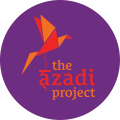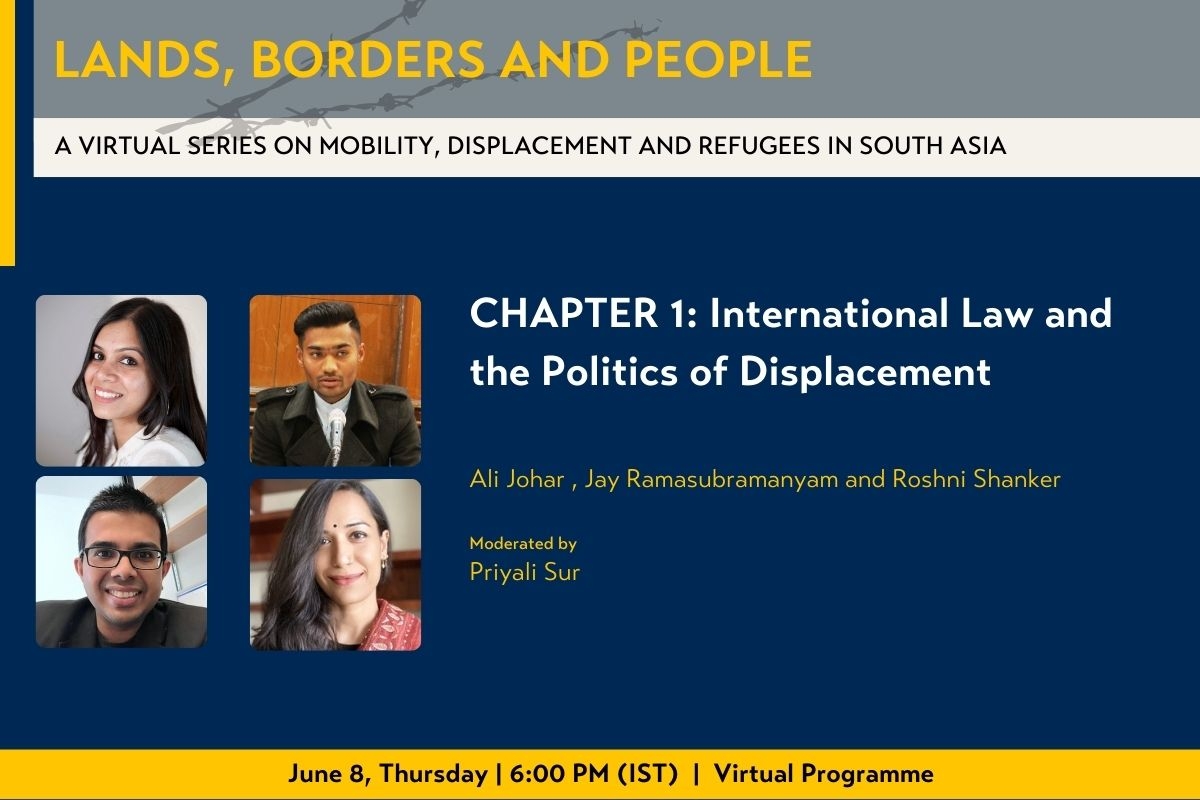Chapter 1: Speakers
Roshni Shanker is the Founder and Executive Director of the Migration and Asylum Project (MAP), India’s first and only dedicated law centre for forced migration and displacement. After completing her law degree, Roshni worked with one of India's leading law firms as a corporate lawyer. She later pursued a Masters from Columbia Law School, NYC, with a focus on international law and human rights. She joined UNHCR in 2010 and worked as a refugee status determination expert in various field offices, including India, Egypt and the UAE. Realising that traditional humanitarian interventions often fail to recognise the centrality of legal assistance to post-displacement recovery, and believing these gaps to be best addressed by grassroots organisations familiar with the local context, Roshni returned to India to set up MAP. MAP pioneered and instiutionalised the concept of legal representation in the asylum process in India and is one of the few organisations globally to have been authorised by UNHCR to represent asylum claims before the agency. Roshni was also a visiting faculty member at the National Law School of India University (Bengaluru) where she taught International Refugee Law. She has published in the Forced Migration Review, Refugee Law Initiative, and International Journal of Refugee Law, amongst others.
Ali Johar is a prominent Rohingya refugee human rights defender and statelessness activist. He is a co-director of Rohingya Human Rights Initiative (www.rohringya.org), a community-based support and campaign organisation. Currently, Ali is a fellow at Refugees International. He is also a recipient of the Social Change Initiative International Fellowship award for the year 2021-2022 and has worked closely with the Institute on Statelessness and Inclusion. He is a youth and education coordinator for the Free Rohingya Coalition, a network of international activists and scholars working to end Myanmar’s genocide. He is interested in education, politics, forced migration, and statelessness. Ali has published articles, blogs, human rights reports and book chapters on the issues faced by refugees and stateless people. Learn more here.
Jay Ramasubramanyam is an Assistant Professor (Teaching) in the Law & Society Program at York University, Toronto. Professor Ramasubramanyam obtained his B.A. in Criminology from Victoria University of Wellington, New Zealand (2009). He received a Postgraduate Diploma and LL.M. in International Human Rights from Birmingham City University, United Kingdom (2011) and his Ph.D. from the Department of Law and Legal Studies and the Institute of Political Economy, at Carleton University (2021). He is a global south migration researcher. His research expertise includes forced migration, international refugee law, statelessness, third world approaches to international law, human rights, race and racialization, postcolonial theory, and South Asian studies. His research explores the asymmetries of power, knowledge production and the ostensible legitimacy of norms in the field of refugee studies and refugee law.
Series moderator and chair
Priyali Sur is the Founder and the Executive Director of The Azadi Project. She has built and implemented programs across Europe, Africa and South Asia, helping refugees and migrants from Afghanistan, India, Iran, Iraq, Myanmar, Niger, Syria, Ukraine and Yemen. She was a former news anchor for CNN-IBN in India, and has consulted as a Social Development expert for the World Bank in Washington, D.C. Her work has been published in CNN, NPR, PBS, and The Guardian, among other international media outlets.
Series collaborator

Registration
To register your interest in one or more of these sessions, please email us at jsundaram@asiasociety.org. The chapters will be hosted as Zoom meeting rooms, so they require pre-registration and have limited seating. Once you write to us, we will send you a Google form with more details, and links to the session closer to the date.
We highly encourage participants to attend the entire series and keep their cameras on for an immersive experience. Whether you have an academic, professional, or personal interest in this topic or the region, we hope you'll join us for this series.
Brief

The United Nations High Commissioner for Refugees (UNHCR) has said that by the end of 2020, at least 82.4 million people in the world have been displaced because of persecution, violence, human rights abuse, and disruptions to public order. Of these, 26.4 million are classified as refugees. Over the years, there have been comprehensive efforts by the global community, to define what makes someone a refugee; how host countries can ensure refugees are protected; and what qualify as refugee rights. The first of these was the 1951 Convention, in the aftermath of the World Wars. This identified refugees' right to live and work in their host country, and to be protected against returning to potentially dangerous home territory. But this was largely limited to those in Europe. The 1967 Protocol aimed to widen its geographic scope to the non-European world, but many questions still remain as far as South Asian countries are concerned.
Barring Afghanistan, no South Asian country is a signatory to the Protocol. This opens up questions on what refugees in this area are legally entitled to. In India, for instance, the 1946 Foreigners Act, rather than any act mentioning or pertaining to refugees, is the main legal framework used for the many refugees in the country, numbering over 2.5 million. Join our panel as we explore some questions relating to refugees' rights and status -- should South Asia sign the 1967 Protocol, or are there other global benchmarks to follow? Would one law across South Asia be most useful or should there be country-wise specifications taking into account the context? At the national and subcontinental level, what have been some examples of legal protection and what are some roadblocks?
Join our panelists, Ali Johar, founding member of Rohingya Human Rights Initiative, Professor Jay Ramasubramanyam, Assistant Professor, York University, and Roshni Shanker, founder of Migration and Asylum Project, as they explore these questions
June 8th, 2023, from 6 pm to 7:30 pm India Time, Via Zoom.
The next three panels are:
June 15th: Climate-induced migration
July 5th: The host economy
July 19th: Media and language
All four of these sessions will be chaired and moderated by Priyali Sur, the Founder and Director of The Azadi Project.